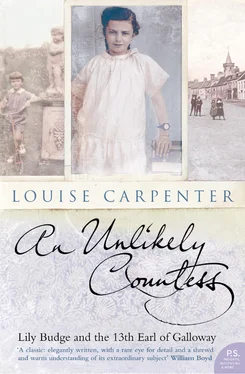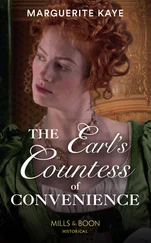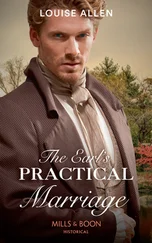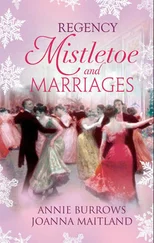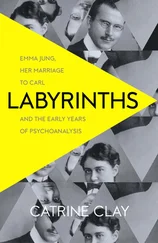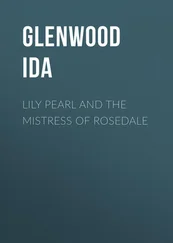1 ...7 8 9 11 12 13 ...18 In time Rose and Lily would prove themselves extremely adept at bolting from Duns. For now, Lily tried to please her mother and her mistress, and wrote later, ‘Although I wasn’t happy, I did my job properly, in fact, they called me Miss Tidy, no one could find anything after I had tidied a room.’ And yet she possessed an instinctive independence that prevented her from accepting her prescribed lot, a tension that was always to complicate her life. Her compliance was short lived. ‘With help from no one,’ she wrote later, ‘I took the initiative and ran away.’ It was 4 a.m. when she climbed out of a window. ‘But’, she added, ‘I hadn’t used much imagination.’ She reached North Street by dawn and no sooner had she knocked on the door and encountered Sis’s fury than she was walking the same road back. Her mistress took her back because of her age, her insecurity, and, no doubt, because she was cheap. A week later Lily bolted again, this time with the hope of travelling to London. She left in daylight, by the same downstairs window, and took the road out of Duns, which she hoped would lead to London eventually. It was a ridiculous plan – she had no food and hardly any money – and once on the road, it occurred to Lily that her ambition was beyond her. She lost her nerve and began to cry. When a stranger passed in his horse and cart, she accepted his offer to climb aboard and be taken home, weeping, to Sis and Papa, back, as she put it, to Duns to ‘face the music’.
Presented with such abject misery, Papa displayed uncharacteristic resolve. ‘“She is NOT going back!” he told Sis. “Enough is enough! The child is desperate.” I may add he won that round,’ Lily later wrote, with obvious relish. Sis, furious in the face of being overruled and intent on exacting some kind of punishment, sent Lily to bed without supper. Victory, though, was sustenance enough.
Within two or three weeks of returning to North Street, Lily began working in Greenlees, a small independent shoe store in the town square, and it was here, among the racks of heels and Oxford brogues, that she made the physical transition from child to young adult. The once gangling limbs were now long and coltish, and her square jaw and jutting cheekbones, quite ugly in a small child, had matured to give her an arresting bone structure. Duns had little to offer a teenage girl interested in fashion. But Lily made the most of what there was. She bought her clothes off the rack from Mrs Saban, wife of the butler at Manderston (her wages of seven shillings and sixpence for a sixty-hour week could not stretch to Aggie Johnson, the dress maker). When Betty, daughter of the town’s one barber, opened a small room in her father’s shop, Lily allowed her to cut off her hair and style it in the marcel wave using her new iron tongs heated up over the fire (electricity did not arrive in Duns until 1936, so even the dentist operated his drill by foot).
Mr Thomson’s school productions began winning prizes again. One in particular – Raggle Taggle Gypsies – made it to the festival finals in Edinburgh until it was discovered that the ‘leading man’ – he with the marcel wave – was in full-time employment and the cast was disqualified. ‘Much to my disappointment,’ Lily wrote, ‘my acting days had come to a halt – much to the relief of my mother, I may add.’ Despite this, there are two periods of Lily’s life where photographs record genuine happiness. The years between sixteen and nineteen are the first and the year immediately after her marriage to Randolph is the second. ‘Life was good,’ she remembered of her adolescence. She was between roles – no longer a child completely under her mother’s rule, and yet not quite a woman with responsibilities of her own. She still gave Sis her earnings, but her pocket money was raised to half a crown. ‘I felt rich indeed.’
Sis’s disdain for pleasure had abated with age, but she permitted certain excesses of youth provided they were experienced within the confines of the church. By now Lily was a committed Sunday School teacher, and a regular on the Christ Church picnics and camping trips by the coast. She looks happy enough in the photographs, but being constantly in the presence of Him must have had a sobering effect, and only at the rare ungodly events that Sis allowed her to attend, dances at the Town Hall, the Drill Hall, and the Girls’ Club, could she relax completely. There, she was more flirt than church mouse.
Sis, Papa, and Etta, not to mention the sensible and hardworking Alice Brockie, now on the cusp of becoming a nurse, came to rue the day that John David Millar walked into Lily’s life. Another forty years would pass before Lily’s friend, Lord Lauderdale, musing on marriage, would comment that romantic matches are often dictated as much by the needs and insecurities of the choosers as the merits of those chosen. Lily met Jock, as he was called, at a dance. He arrived, as usual, revving his motorbike with a cigarette hanging from his lips.
A dance in Duns was a hot ticket. The most upmarket were held in the Girls’ Club, a hostel housing young ladies from outlying areas in weekday employment, for the sum of £1 per week. The rules by which Miss White ran her establishment serve as a succinct metaphor for the aspirations of many Duns mothers. Only certain boys were allowed inside. The son of Lady Miller’s secretary at Manderston was one; the son of the Manderston butler was another. These boys, associated by proxy with the gentry, were considered safe, ‘a cut above’. Jock Millar on his motorbike would certainly have been a cut below. (Although his grandfather had been a ship owner in Dundee, his father had been cut off after falling in love with a servant girl.) He worked as a butcher in Veitch’s, the most prestigious independent grocers in Duns Town Square, where every morning he could be seen neatly arranging Mrs Veitch’s meat on small trays in the window. He had orange hair, a large forehead, and biggish ears. All this, combined with the apron, did not make him an obvious Duns Don Juan. But he dressed in sharp three-piece suits and had a way with women.
There were three things about him that attracted Lily: other girls wanted him; he was older and therefore more sophisticated; and, most alluring of all, he represented danger. He took her virginity in the fields outlying Duns and afterwards she climbed on the back of his bike and roared home to Sis, revelling in her act of defiance. Being with Jock, confident, desired, fast Jock, provided her with attention and physical affection – always in short supply at North Street – as well as security by association. Lily’s fatal error was to mistake the euphoria this gave her for love. Did Jock love her back? There are photographs of them lounging lazily in fields, he with one arm draped casually round her shoulders, the other round the plump and beaming Etta. Lily looks to have swallowed a happy pill. Jock, too, appears to be enjoying himself, but if he did love her, he had a novel way of showing it, for many more women continued to climb aboard the back of his bike. Duns being what it was, none of this escaped comment.
In February 1936 Lily became pregnant. The Miller family had by now moved from North Street to staff quarters adjacent to a large house in Langton Gate owned by Major Dees, a local solicitor and pillar of the community. Papa was his chauffeur and would sit bolt upright behind the wheel of Major Dees’s racing green Bentley. Occasionally the Major could be glimpsed in his tweeds, sitting in the back. If the scandal of Lily’s pregnancy unsettled her parents’ new-found respectability, her mother did not buckle in the crisis. Intuiting that her daughter was about to saddle herself with a bad bet – Sis was naturally distrustful of men, but she particularly loathed J.B., as she called him – she made herself clear. Lily must keep the child, but not the man. She would help bring it up. Lily was horror-struck. Nursing a child under her mother’s instruction while Jock went off with other women, leaving her behind, had limited appeal. She wanted to escape from her mother, and besides, she felt herself to be desperately in love.
Читать дальше
